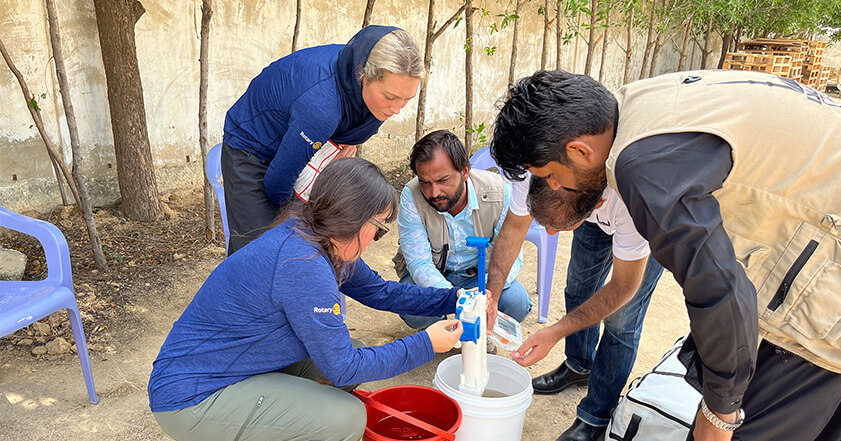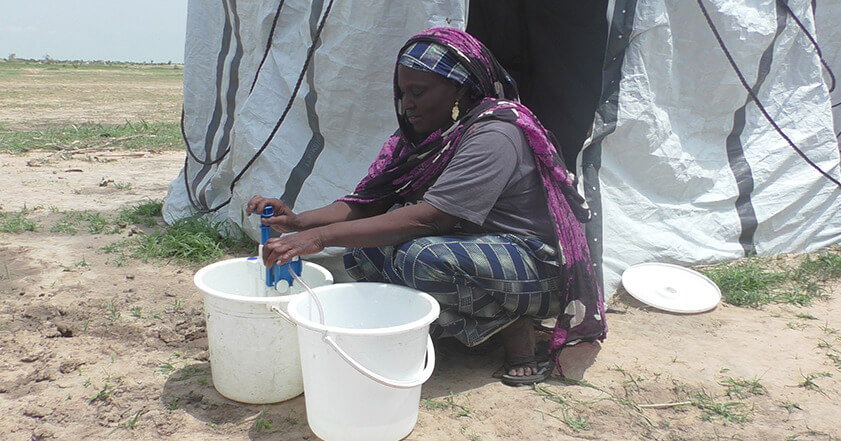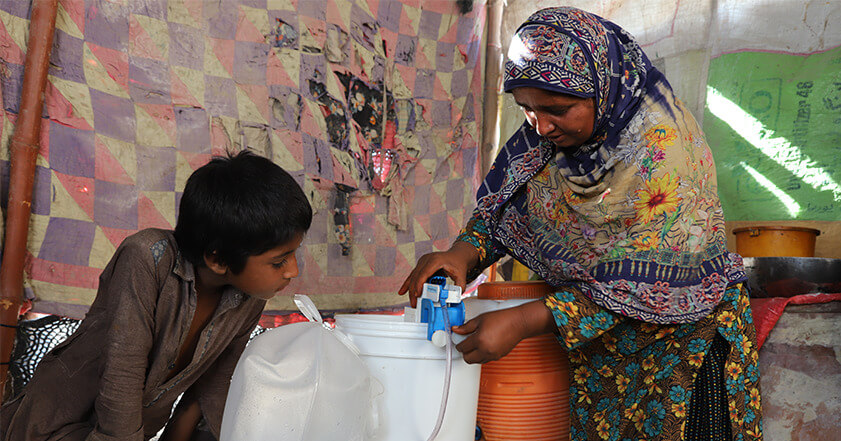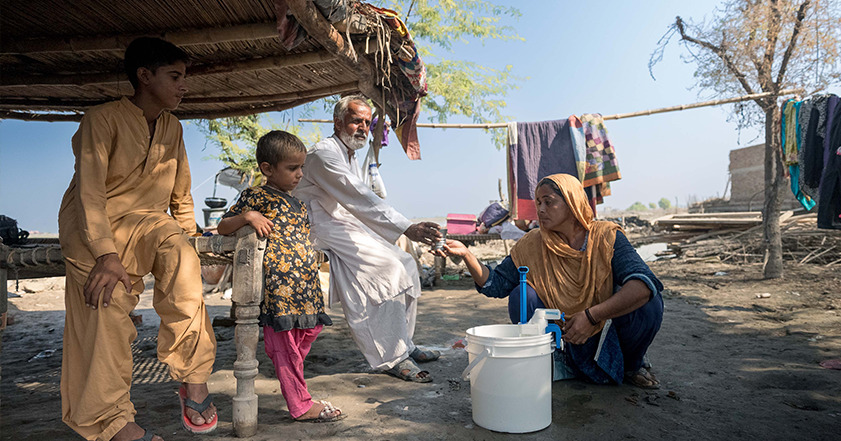When disasters devastate whole communities, finding safe water can be extremely difficult. That’s why we often include water filters with our aid packages, to help people produce life saving clean water.
To mark World Water Day 2023, we take a deep dive into the story behind our water filter. Read on to discover its connection to Rotary and how it came to be a staple in many of our responses around the world.
ShelterBox’s Partnership with Rotary
ShelterBox is very proud of its Rotary heritage. In 2000, Rotary Club members in Helston Lizard in Cornwall encouraged members to come up with projects to mark the Millennium. Here came the idea for ShelterBox.
A year later, we engaged our first ever response supporting families affected by the earthquake in Gujarat, India.
We have now grown in both size and reach, and highly value our role as formal project partner with Rotary International for disaster relief. We rely on thousands of partnerships across Rotary, ranging from fundraising clubs and international ‘affiliate’ teams, to working with Rotary members on the ground in disaster response.
Ensuring Access to Clean, Safe Water: The Grifaid Water Filter

We have a newly established supply partnership with the Rotary-founded Safe Water Trust, who manufacture the Grifaid water filter.
As a shelter-based organisation, we know the crucial importance of access to safe, clean drinking water. In the days following a disaster, access to clean water can save lives, and give families a better chance in their recovery. So, getting the right water filter to people is key.
The Grifaid water filter began when Rotary District 1030 appealed for assistance with water filter systems. Local engineer and Rotarian John Griffith volunteered his expertise. John worked in his garage creating new, sustainable household water treatment filter designs. He went on to develop the Grifaid filters that we use in some of our responses today.
In just one hour, the Grifaid Family Filter can filter up to 120 litres of water, providing families with years of clean, potable drinking water after conflict and disaster.
Trialling the Grifaid Filter in Minawao Refugee Camp, Cameroon

We’ve been trialling the Grifaid filters in our ongoing project in Cameroon, working with people of the Minawao refugee camp. In Minawao Camp, the feedback we received was very positive, people found the filter to be very effective.
Minawao is a huge refugee camp in the north of Cameroon, 40 miles east of the Nigerian border. It’s officially home to around 75,000 refugees, but it’s believed the number is much higher. Most have fled from Boko Haram attacks in Nigeria. They’ve lost their homes, their livelihoods, and many their loved ones.
All those trained and provided with a filter were using it to supply clean water for their families, telling us the water tasted better than before. They reported the Grifaid filters works faster than other filters, and was easier to clean and maintain – one less thing for families to worry about.
Trialling the Grifaid Filter in Pakistan

The filter was invaluable in our Pakistan flooding response, and continues to be part of our aid package to those affected.
The time after a mass flooding event is often the most dangerous for the spread of disease, due to the amount of standing water, lack of drainage, and contamination of normal water sources. This is when water filters literally save lives.
The design and mechanism is unlike anything we have seen from other NGOs. When the flooding happened, the water was contaminated and caused lots of severe diarrhoea diseases. Our children got sick. Now we are able to drink safe and clean water. We are very happy. We were taught how to use the filter and how to clean it.
– Pari, Mirpur Khas, Pakistan
At ShelterBox, we are privileged to be able to work with the Rotary family in so many dynamic ways – with each of us playing our part to ensure that communities get what they need to survive and recover after disaster.
Find out more about the importance of water filters and how ShelterBox is helping people produce vital clean water.

